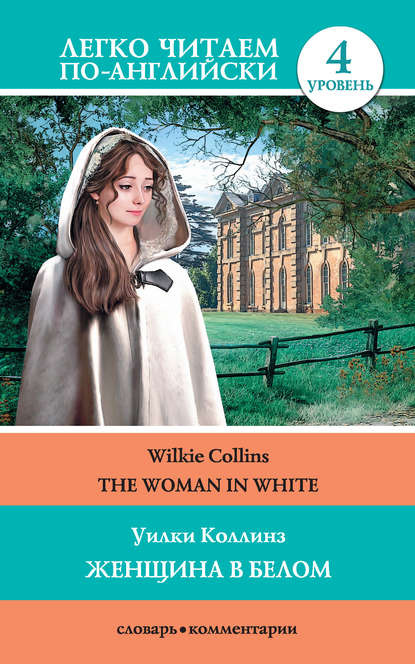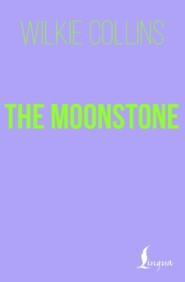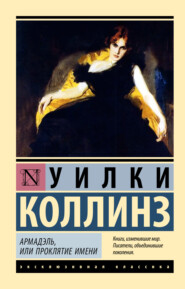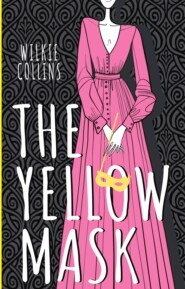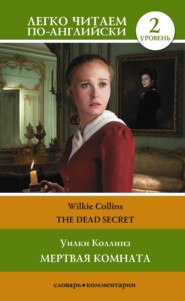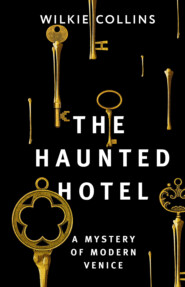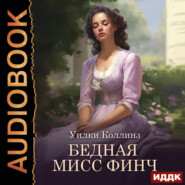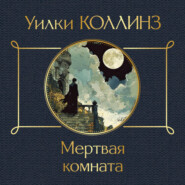По всем вопросам обращайтесь на: info@litportal.ru
(©) 2003-2025.
✖
The Woman in White / Женщина в белом
Настройки чтения
Размер шрифта
Высота строк
Поля
“Do you remember me telling you that I was going to Cumberland? Well, since we last met, I have been staying all the time at Limmeridge House.”
The woman’s sad pale face brightened for a moment.
“At Limmeridge House! Ah, how happy you must be there,” she said.
I looked at her. She smiled and I saw again the extraordinary likeness between her and Laura Fairlie. I had seen Anne Catherick’s likeness in Miss Fairlie. I now saw Miss Fairlie’s likeness in Anne Catherick. The great difference was that Laura’s face was full of joy and happiness, while this woman’s face was sad and frightened. What could it mean?
Anne Catherick’s hand laid on my shoulder.
“You are looking at me, and you are thinking of something,” she said. “What is it?”
“Nothing extraordinary,” I answered. “I was only wondering how you came here.”
“I came with a friend who is very good to me. I have only been here two days. Her tomb must be as white as snow. Is there anything wrong in that? I hope not. Surely nothing can be wrong that I do for Mrs. Fairlie’s sake?”
She was watching me.
“My name is Anne Catherick,” she said. “And I’ve come here to be close to my dear friend’s grave. Nobody looks after it – see how dirty it is. I must clean it.”
She picked up her cloth and started cleaning the marble.
“Are you staying in the village?” I asked her.
“No, no, not in the village,” she replied, “at a farm about three miles away. “Three miles away at a farm. Do you know the farm? They call it Todd’s Corner.[42 - Todd’s Corner – ферма Тодда]”
I remembered the place perfectly – it was one of the oldest farms in the neighbourhood, situated in a solitary, sheltered spot.
“The people there are good and kind, and an elderly woman looks after me well.”
“And where have you come from?” I went on.
“I escaped,” she said. “I’ve run away and I’m not going back.”
I remember that she escapes from an Asylum – a place where mad people are kept.
“You don’t think I should go back there, do you?” she said, looking at me worriedly. “I’m not mad and I’ve done nothing wrong. I was shut up in the Asylum by a man who is very cruel.”
“Certainly not. I am glad you escaped from it – I am glad I helped you.”
“Yes, yes, you did help me indeed,” she went on. “It was easy to escape. They never suspected me as they suspected the others. I was so quiet, and so obedient, and so easily frightened. You helped me. Did I thank you at the time? I thank you now very kindly.”
“Had you no father or mother to take care of you?”
“Father? – I never saw him – I never heard mother speak of him. Father? Ah, dear! he is dead, I suppose.”
“And your mother?”
“I don’t get on well with her.[43 - I don’t get on well with her. – Я с ней не лажу.] We are a trouble and a fear to each other. Don’t ask me about mother.”
Suddenly she looked at me with a new expression. “How is Miss Fairlie?” she asked.
“I’m afraid Miss Fairlie was not very well or very happy this morning,” I said.
She murmured a few words, but they were spoken in such a low tone, that I could not even guess at what they meant.
“Miss Fairlie has received your letter this morning. You did write that letter, didn’t you, Anne?”
* * *
“How do you know?” she said faintly. “Who showed it to you?” The blood rushed back into her face. “I never wrote it,” she cried; “I know nothing about it!”
“Yes,” I said, “you wrote it, and you know about it. It was wrong to send such a letter, it was wrong to frighten Miss Fairlie. If you had anything to say that it was right and necessary for her to hear, you should have gone yourself to Limmeridge House – you should have spoken to the young lady with your own lips.”
Anne sank down on her knees with her arms round the cross, and made no reply.
“Miss Fairlie will keep your secret,” I went on, “and not let you come to any harm. Will you see her tomorrow at the farm? Will you meet her in the garden at Limmeridge House?”
“Oh!” Her lips murmured the words close on the grave-stone. “You know how I love your child! Oh, Mrs. Fairlie! Mrs. Fairlie! Tell me how to save her. Be my darling and my mother once more, and tell me what to do for the best.”
I heard her lips kissing the stone. I stooped down,[44 - I stooped down – я склонился] and took the poor helpless hands tenderly in mine, and tried to soothe her.
It was useless. She snatched her hands from me, and never moved her face from the stone.
“I will talk of nothing to distress you,” I said.
“You want something,” she answered sharply and suspiciously. “Don’t look at me like that. Speak to me – tell me what you want.”
“I only want you to quiet yourself.”
“Why don’t you help me?” she asked, with angry suddenness.
“Yes, yes,” I said, “I will help you, and you will soon remember. I ask you to see Miss Fairlie tomorrow and to tell her the truth about the letter.”
“Ah! Miss Fairlie – Fairlie – Fairlie – ”
The mere utterance of the loved familiar name seemed to quiet her. Her face softened and grew like itself again.
“You need have no fear of Miss Fairlie,” I continued, “She knows so much about it already, that you will have no difficulty in telling her all. You mention no names in the letter; but Miss Fairlie knows that the person you write of is Sir Percival Glyde – ”
At the mention of Sir Percival’s name, she started to her feet, and a look of terrible hatred and fear came over the woman’s face. She screamed out, and my heart leaped in terror.
“What harm has he done you?” I asked.
“Sir Percival Glyde is the wicked man who shut me up in the Asylum!” she cried.
* * *
“I’m coming! I’m coming!” cried the voice from behind the clump of trees. In a moment more an elderly woman appeared.
The woman’s sad pale face brightened for a moment.
“At Limmeridge House! Ah, how happy you must be there,” she said.
I looked at her. She smiled and I saw again the extraordinary likeness between her and Laura Fairlie. I had seen Anne Catherick’s likeness in Miss Fairlie. I now saw Miss Fairlie’s likeness in Anne Catherick. The great difference was that Laura’s face was full of joy and happiness, while this woman’s face was sad and frightened. What could it mean?
Anne Catherick’s hand laid on my shoulder.
“You are looking at me, and you are thinking of something,” she said. “What is it?”
“Nothing extraordinary,” I answered. “I was only wondering how you came here.”
“I came with a friend who is very good to me. I have only been here two days. Her tomb must be as white as snow. Is there anything wrong in that? I hope not. Surely nothing can be wrong that I do for Mrs. Fairlie’s sake?”
She was watching me.
“My name is Anne Catherick,” she said. “And I’ve come here to be close to my dear friend’s grave. Nobody looks after it – see how dirty it is. I must clean it.”
She picked up her cloth and started cleaning the marble.
“Are you staying in the village?” I asked her.
“No, no, not in the village,” she replied, “at a farm about three miles away. “Three miles away at a farm. Do you know the farm? They call it Todd’s Corner.[42 - Todd’s Corner – ферма Тодда]”
I remembered the place perfectly – it was one of the oldest farms in the neighbourhood, situated in a solitary, sheltered spot.
“The people there are good and kind, and an elderly woman looks after me well.”
“And where have you come from?” I went on.
“I escaped,” she said. “I’ve run away and I’m not going back.”
I remember that she escapes from an Asylum – a place where mad people are kept.
“You don’t think I should go back there, do you?” she said, looking at me worriedly. “I’m not mad and I’ve done nothing wrong. I was shut up in the Asylum by a man who is very cruel.”
“Certainly not. I am glad you escaped from it – I am glad I helped you.”
“Yes, yes, you did help me indeed,” she went on. “It was easy to escape. They never suspected me as they suspected the others. I was so quiet, and so obedient, and so easily frightened. You helped me. Did I thank you at the time? I thank you now very kindly.”
“Had you no father or mother to take care of you?”
“Father? – I never saw him – I never heard mother speak of him. Father? Ah, dear! he is dead, I suppose.”
“And your mother?”
“I don’t get on well with her.[43 - I don’t get on well with her. – Я с ней не лажу.] We are a trouble and a fear to each other. Don’t ask me about mother.”
Suddenly she looked at me with a new expression. “How is Miss Fairlie?” she asked.
“I’m afraid Miss Fairlie was not very well or very happy this morning,” I said.
She murmured a few words, but they were spoken in such a low tone, that I could not even guess at what they meant.
“Miss Fairlie has received your letter this morning. You did write that letter, didn’t you, Anne?”
* * *
“How do you know?” she said faintly. “Who showed it to you?” The blood rushed back into her face. “I never wrote it,” she cried; “I know nothing about it!”
“Yes,” I said, “you wrote it, and you know about it. It was wrong to send such a letter, it was wrong to frighten Miss Fairlie. If you had anything to say that it was right and necessary for her to hear, you should have gone yourself to Limmeridge House – you should have spoken to the young lady with your own lips.”
Anne sank down on her knees with her arms round the cross, and made no reply.
“Miss Fairlie will keep your secret,” I went on, “and not let you come to any harm. Will you see her tomorrow at the farm? Will you meet her in the garden at Limmeridge House?”
“Oh!” Her lips murmured the words close on the grave-stone. “You know how I love your child! Oh, Mrs. Fairlie! Mrs. Fairlie! Tell me how to save her. Be my darling and my mother once more, and tell me what to do for the best.”
I heard her lips kissing the stone. I stooped down,[44 - I stooped down – я склонился] and took the poor helpless hands tenderly in mine, and tried to soothe her.
It was useless. She snatched her hands from me, and never moved her face from the stone.
“I will talk of nothing to distress you,” I said.
“You want something,” she answered sharply and suspiciously. “Don’t look at me like that. Speak to me – tell me what you want.”
“I only want you to quiet yourself.”
“Why don’t you help me?” she asked, with angry suddenness.
“Yes, yes,” I said, “I will help you, and you will soon remember. I ask you to see Miss Fairlie tomorrow and to tell her the truth about the letter.”
“Ah! Miss Fairlie – Fairlie – Fairlie – ”
The mere utterance of the loved familiar name seemed to quiet her. Her face softened and grew like itself again.
“You need have no fear of Miss Fairlie,” I continued, “She knows so much about it already, that you will have no difficulty in telling her all. You mention no names in the letter; but Miss Fairlie knows that the person you write of is Sir Percival Glyde – ”
At the mention of Sir Percival’s name, she started to her feet, and a look of terrible hatred and fear came over the woman’s face. She screamed out, and my heart leaped in terror.
“What harm has he done you?” I asked.
“Sir Percival Glyde is the wicked man who shut me up in the Asylum!” she cried.
* * *
“I’m coming! I’m coming!” cried the voice from behind the clump of trees. In a moment more an elderly woman appeared.





